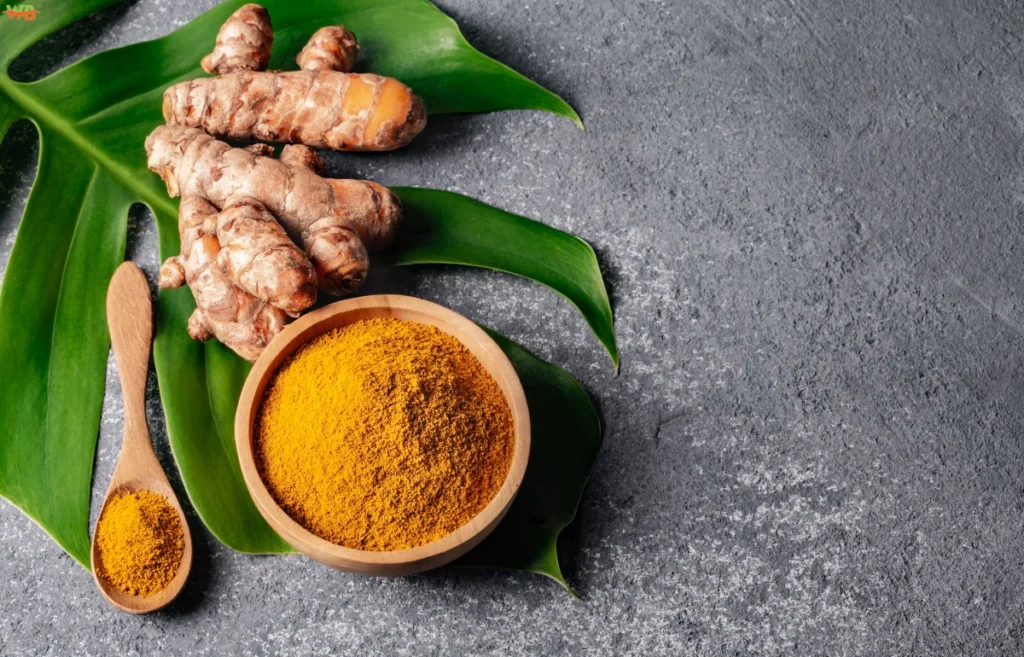
Ever feel like your body could use a little boost to keep things running smoothly? Your circulatory system works 24/7, pumping blood around like an efficient delivery service. But sometimes, your circulatory health needs a little extra love—and that’s where nature steps in. Nature’s got some amazing tricks up its sleeve to help your heart and blood vessels thrive. Let’s explore these natural helpers that keep your body humming like a well-tuned engine!
Understanding Circulatory Health
Think of your circulatory system as the highways and roads of your body, essential for maintaining circulatory health. Blood is the traffic, delivering oxygen and nutrients to every corner while picking up waste along the way. When everything flows smoothly, you’re golden. But when there’s a “traffic jam” (think clogged arteries or poor blood flow), things can go downhill fast.
If you notice persistent issues like leg swelling or varicose veins, it might be time to consult a vein specialist. These experts focus on diagnosing and treating vein-related problems to keep your circulatory system in tip-top shape.
Why Is It Vital for Overall Wellness?
Some of these advantages must be maintained with proper circulation:
- Glowing skin
- Sharp thinking
- Steady energy levels
When your blood flow is on point, your whole body feels the difference. Plus, a healthy circulatory system reduces your risk of major health issues like heart disease.
Plant-Based Helpers for Circulatory Health
Let’s face it—plants are total overachievers when it comes to health. They’re packed with nutrients, antioxidants, and compounds that work wonders for your body. And when it comes to circulatory health, certain plants deserve a standing ovation. These nature-powered ingredients contribute to better circulation and a healthier vascular system. Let’s take a closer look!
Garlic: A Heart’s Best Friend
Garlic doesn’t just make your pasta taste amazing—it’s also your heart’s secret weapon. Thanks to allicin, its star compound, garlic helps:
- Relax blood vessels
- Lower blood pressure
- Reduce cholesterol
Pro tip: To maximize its health benefits, crush garlic and let it sit for a few minutes before cooking. That’s when the magic happens!
Gingko Biloba: The Circulation Booster

This ancient plant is like a brain booster and circulation superhero rolled into one. If you’re wondering how to get rid of brain fog, Ginkgo might be the answer. It improves blood flow, especially to your brain, helping you stay sharp and focused. If you’ve ever struggled to concentrate or felt mentally foggy, a ginkgo tea or supplement might be just what you need. It’s a great way to clear mental fog and boost focus naturally.
Turmeric: The Anti-Inflammatory Powerhouse
With good reason, turmeric is essentially the spice industry’s golden child. Curcumin, its active ingredient, is a strong anti-inflammatory that safeguards your arteries. Also, it keeps plaque from building up. Whether you add it to curries, smoothies, or lattes, turmeric is like a warm hug for your circulatory system.
Cayenne Pepper: The Spicy Healer for Circulatory Health
Who knew a little spice could do so much good? Cayenne pepper’s fiery compound, capsaicin, is a natural circulatory health booster. It aids in widening blood vessels, enhancing blood flow while giving your metabolism a gentle kick. Feeling adventurous? Try adding a pinch to your hot chocolate for a surprising (and healthy!) twist.
Beets: The Natural Blood Flow Enhancer
Beets are like nature’s pre-workout drink. Rich in nitrates, they help widen blood vessels, improving oxygen delivery throughout your body. Whether you roast them, juice them, or toss them in a salad, beets are a delicious way to keep your heart pumping strong.
Leafy Greens: The Artery Protectors
Swiss chard, spinach, and kale are more than just salad staples—they’re your arteries’ best friends. They are loaded with:
- Potassium
- Nitrates
- Antioxidants
Packed with nutrients, leafy greens help maintain optimal blood pressure and enhance the flexibility of your arteries. If you’re not a fan of salads, toss them into smoothies or soups for an easy (and sneaky!) nutrient boost.
Pomegranate: The Sweet Circulatory Health Savior
Pomegranates aren’t just pretty. They’re packed with polyphenols and antioxidants that protect your blood vessels and improve circulation. Sip on pomegranate juice or sprinkle the seeds on yogurt for a sweet and tangy treat your heart will love.
Plants aren’t just a side dish—they’re the main event when it comes to boosting your circulatory health. With options as tasty and versatile as these, why not let nature take center stage on your plate?
Potential Risks and Precautions

Let’s be real—just because something’s “natural” doesn’t mean it’s automatically safe for everyone. While nature’s helpers are incredible, they come with their own set of quirks. Whether it’s allergies or mixing with medications, it’s important to approach natural remedies with a bit of caution. Here’s what you need to know to stay safe while reaping the benefits!
Allergies: Know Your Triggers
Ever had a sneezing fit after trying a new spice or tea? Allergies are more common than you think. Garlic, turmeric, or even honey can trigger reactions in some people. Watch out for symptoms like:
- Rashes
- Swelling
- Difficulty breathing
If you’re unsure, do a small “patch test” first or consult an allergist.
Overconsumption: More Isn’t Always Better
Sure, garlic is amazing for your heart. But eating five cloves in one sitting might upset your stomach. Overdoing it with natural remedies like cayenne pepper or turmeric can cause side effects like:
- Irritation
- Nausea
- Headaches
Think of balance, not overload. A little goes a long way!
Interactions with Medications and Circulatory Health
Here’s the tricky part: some natural remedies don’t play nice with medications, especially when it comes to circulatory health. For example, garlic and turmeric can thin the blood. This effect might not be ideal if you’re already on blood thinners. Always check with your doctor if you’re taking meds and want to add a new herb or spice to your routine to support your circulatory health.
Underlying Health Conditions
If you have the following health issues, certain remedies might not be right for you:
- Diabetes
- High blood pressure
- Kidney problems
For instance, the potassium in leafy greens can be too much for people with kidney disease. It’s always worth getting a professional opinion before diving into a new regimen.
Quality Matters
Not every natural remedy or supplement meets the same high standards. Some brands might sneak in fillers or use low-quality ingredients. Always go for trusted, reputable brands, and check for certifications like:
- Organic
- Third-party testing
Your health deserves the best!
Nature’s helpers are amazing, but they work best when used mindfully. By balancing these remedies with common sense, you can enjoy the benefits safely and confidently. Because when it comes to your health, a little caution is always worth it!
Conclusion: Circulatory Health
Nature’s got your back when it comes to keeping your circulatory health and circulatory system in top shape. From garlic to fish, these helpers are simple, accessible, and effective. Why not let nature lend a hand in your wellness journey? After all, a healthy heart means a happy you!
FAQs About Boosting Circulatory Health Naturally
1. Can stress affect my circulatory health, and how can I manage it naturally?
- Yes, stress can negatively impact your circulatory system by increasing blood pressure and causing inflammation. To manage stress naturally, consider practices like meditation, deep breathing, or yoga. Regular exercise and adequate sleep are also crucial in maintaining healthy circulation and reducing stress-induced issues.
2. How does hydration influence circulatory health?
- Staying hydrated is essential for optimal blood flow. Without enough water, the viscosity of your blood increases, making it less efficient at delivering oxygen and nutrients. Drinking plenty of water throughout the day supports smooth circulation and helps transport nutrients effectively across the body.
3. Are there specific foods or habits that can worsen circulatory health?
- Yes, foods high in trans fats, sodium, and added sugars can harm your circulatory health by contributing to high blood pressure and cholesterol levels. Habits like smoking and leading a sedentary lifestyle also negatively impact blood flow and vascular health. Adopting a diet rich in whole foods and staying active can counteract these effects.
4. What role does regular exercise play in promoting circulation?
- Exercise improves blood flow by encouraging your heart to pump more efficiently and helping arteries stay flexible. Activities like walking, swimming, or cycling stimulate circulation, strengthen the heart, and reduce the risk of vascular diseases. Engage in physical activities like brisk walking or swimming for at least half an hour on most days to keep your blood flow strong and steady.
5. Can temperature changes influence blood circulation?
- Yes, both extreme cold and heat can affect circulation. Cold weather causes blood vessels to constrict, reducing blood flow, while heat can dilate vessels, improving circulation. Using warm baths, wearing thermal layers in winter, and avoiding prolonged exposure to extreme temperatures can help maintain healthy blood flow.

